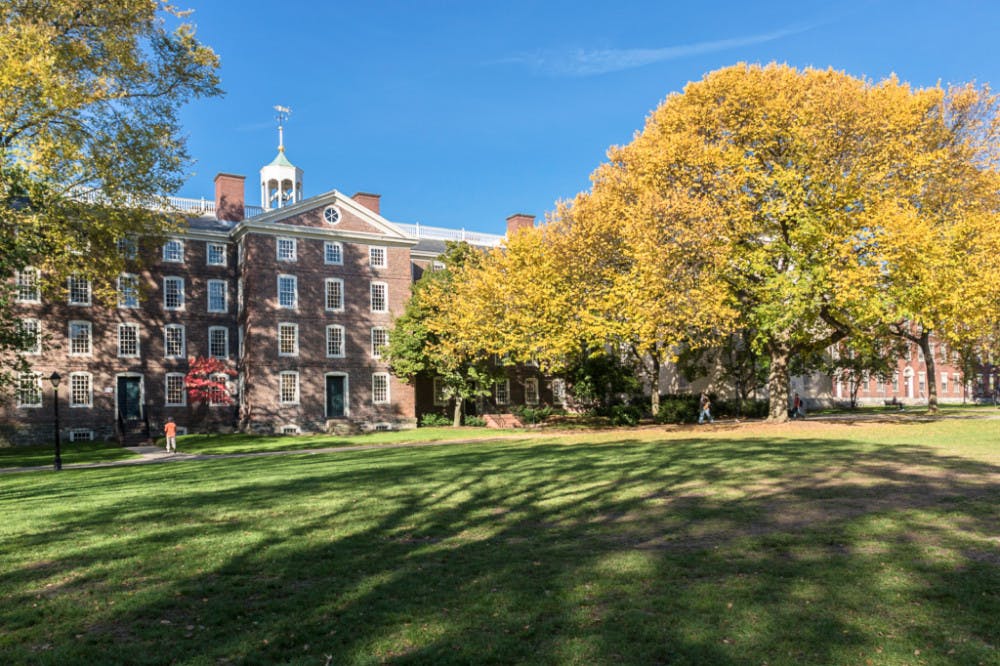With the U.S. Supreme Court set to hear arguments around the legality of the Deferred Action for Childhood Arrivals program in November, Brown filed an amicus brief earlier this month alongside 18 other universities to advocate for DACA’s future. The brief urged the Supreme Court to maintain the program, which allows nearly 800,000 undocumented individuals to legally work and live in the United States.
In the brief, Brown and the other universities argued that rescinding DACA would affect the institutions’ ability to advance educational and research goals, and prevent the United States from benefiting from the affected students’ talents.
In addition, striking down DACA would “impose direct harm on current students and alumni,” according to the brief.
“Students need the ability to work after graduation and the ability to fully participate in their life and society without constant fear of deportation,” said Brian Clark, the University’s director of news and editorial development.
The University filed its brief as part of the Department of Homeland Security et al. v. Regents of the University of California et al. case. Since President Donald Trump issued an order to suspend the program in September 2017, several court cases have emerged to challenge both the legality of Trump’s order and of the program.
The Supreme Court will hear oral arguments about the program Nov. 12, and is slated to deliver a decision by early 2020. Pending a decision, qualifying individuals can continue to enroll for and renew their DACA status.
DACA guidelines require that participants must be undocumented, under the age of 31 and must have arrived to the United States before they turned 16. Enrollees must also have continuously resided in the United States since June 15, 2007.
“One of the bigger issues in higher ed right now is that newer students in incoming classes won’t have DACA because they don’t meet the requirements for it, it’s a specific age range,” said Julio Reyes, program director of the Undocumented, First-Generation College and Low Income Student Center.
But, in the meantime, by issuing a brief the University reaffirmed its “support for immigrant communities, specifically DACA students,” Reyes added. The brief also “validates and affirms our work in looking to support those that fall out of the DACA community,” he said.
The University currently has several initiatives geared toward supporting DACA and undocumented students on campus. These include the University’s 2016 commitment to considering undocumented or DACA-status applicants as if they were U.S. citizens or permanent residents, ensuring that they would be considered under the University’s need-blind admission policy.
Since spring 2017, the University has also covered students’ legal fees and applications for DACA renewal status. Application fees usually cost $495, according to U.S. Citizenship and Immigration Services.
“We fully support our students and want to help them ensure they are able to be successful while here at Brown, so if they are thinking about their DACA status or how they are going to pay for a lawyer, that’s an additional challenge,” said Marisa Quinn, chief of staff to the provost. “We wanted to take away as many obstacles as we could in a supportive, fluid and precarious time.”





